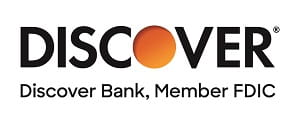-
Compare Lenders
featured articles
featured articles
-
Scholarships
featured articles
featured articles
featured articles
featured articles
-
Plan for College
featured articles
featured articles
featured articles
featured articles
featured articles
featured articles
-
Student Loans
featured articles
featured articles
featured articles
- Filing the FAFSA 2025-2026: A Simple Guide for Students
- FAFSA FAQ - Your FAFSA Questions Answered
- The complete guide to federal undergraduate student loans
- What are Federal Parent PLUS Loans and How to Apply
- Financial Aid for Graduate School
- Compare Subsidized and Unsubsidized Student Loans
- View All Articles >
featured articles
featured articles
-
Credit Cards
featured articles
featured articles
featured articles
-
Money Management
featured articles
featured articles
featured articles
featured articles
featured articles
featured articles
featured articles
- Student LIFE Blog
Edvisors (“Edvisors Network, Inc.”) provides independent advertising-supported platforms for consumers to search compare and apply for private student loans. Loan offers from participating lenders that appear on our websites are not affiliated with any college and/or universities, and there are no colleges and/or universities which endorse Edvisors’ products or services. Lender search results do not constitute an official college preferred lender list. Edvisors receives compensation from lenders that appear on this site. This compensation may impact the placement of where lenders appear on this site, for example, the order in which the lenders appear when included in a list. Not all lenders participate in our sites and lenders that do participate may not offer loans to every school.
Edvisors is not a lender and makes no representations or warranties about your eligibility for a particular loan or financial aid. Lenders are solely responsible for any and all credit decisions, loan approval and rates, terms and other costs of the loan offered and may vary based upon the lender you select. Please check with your school or lender directly for information related to your personal eligibility.
Edvisors has endeavored to provide accurate information. However, the results provided by lenders are for illustrative purposes only and accuracy is not guaranteed, as such, Edvisors assumes no responsibility for errors or omission in the information provided.
Thank you for your interest in Edvisors' 2020-2021 Guide to Filing the FAFSA.
Please complete the form below to access your free copy.
Thank you! Click here to download your free FAFSA Guide.
Enter your email below to receive your Student Loan Handbook from Edvisors.
Please check your email for the Student Loan Handbook.
Student LIFE - The Edvisors Blog
Student LIFE covers the latest information on finance and education. Learn about timely news, developments and perspectives relating to FAFSA, scholarships, student loans, financial aid and other aspects of planning and paying for college as well as budgeting, saving and other money management issues of concern for young adults. This blog has a practical focus, providing insights and advice.
Find Your Topic Here
When you're a college graduate, understanding how much you can expect to make in your first job is crucial. Without this knowledge it will be difficult to plan for your finances and how you will manage monthly expenses and potentially student loan payments. Managing your expectations early will help ensure success later.
For members of Gen Z taking on debt is becoming more common. While it may feel difficult to overcome financial challenges, it’s important to focus on building strong money habits instead of giving into normalized debt loads. Here are three ways society is normalizing debt, plus actionable strategies to take control of your finances.
The Biden administration has filed an emergency appeal with the U.S. Supreme Court in hopes of continuing their implementation of the SAVE Plan for millions of borrowers.
Artificial Intelligence (AI) has the potential to revolutionize the college admissions process by leveraging advanced algorithms, AI can analyze vast amounts of data to uncover patterns and insights, thereby assisting admissions teams in identifying candidates.
The U.S. Department of Education has announced their plans for the 2025-2026 FAFSA release. As they, and the rest of the financial aid community, are working through the 2024-2025 application, it's about time to prepare for the next FAFSA cycle.
In a recent announcement, the U.S. Department of Education has indicated that schools will not be given the ability to make necessary batch corrections for outstanding FAFSA applications. The most recent announcement could impact thousands of students nationwide, and has left school rushing against the clock to process their FAFSA applications that require corrections.
More than one-third of the American workforce identifies as independent — freelance, temporary, or contract workers who set their own hours and rates. Maximizing your income through independent work requires personal discipline.
Navigating the complex landscape of potential student loan forgiveness can be confusing for borrowers looking for relief. As new updates emerge, understanding the proposals, potential qualifies, and the pathways to debt relief is crucial.
Dual enrollment programs offer distinct advantages for high school students. However, it is essential to take the necessary steps for enrollment and to ensure you fully benefit from the program.
Copyright © 2025 by Edvisors.com. All rights reserved.










